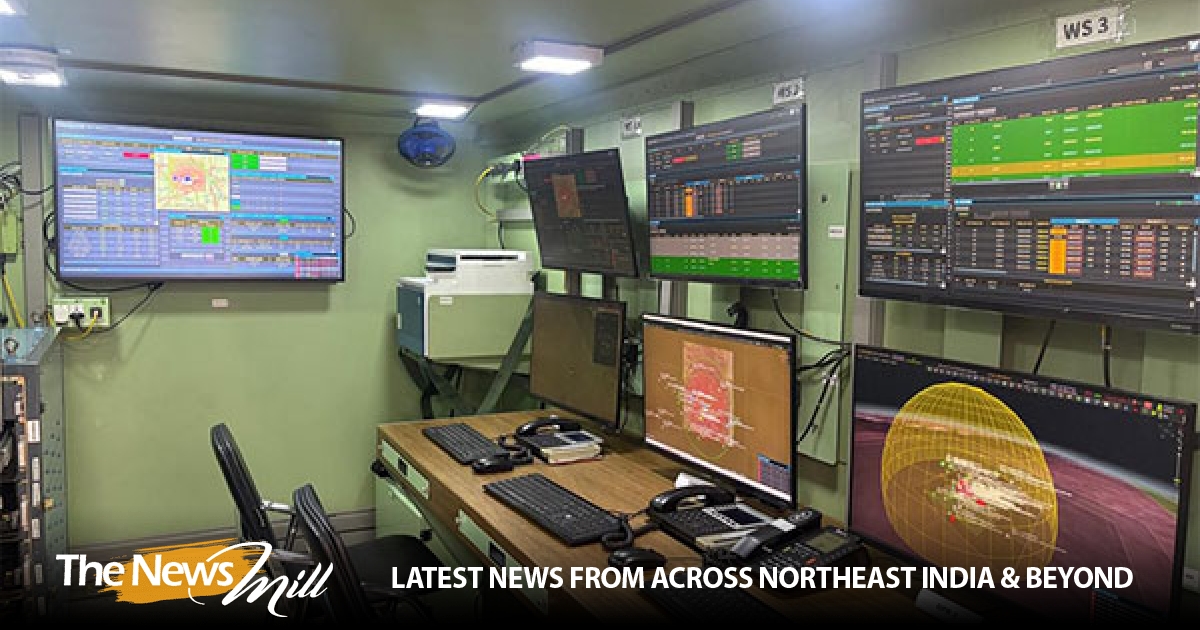In a significant advancement for India’s defence infrastructure, the Indian Army has made impressive progress with the development and phased induction of Project Akashteer. This initiative marks a vital aspect of the Army’s broader strategy known as the “Decade of Transformation” and the “Year of Tech Absorption.” The primary objective of Project Akashteer is to establish a robust and adaptive air defence network, capable of addressing emerging aerial threats with speed and accuracy.
Recently, the project underwent a real-time validation exercise that simulated potential conflict scenarios expected in future warfare. High-ranking military officials observed the validation process, praising the accomplishments of the initiative and acknowledging the dedicated team behind Akashteer. The officer highlighted that this project signifies a transformative leap in the Indian Army’s air defence capabilities.
At the core of Project Akashteer is a fully automated and integrated air defence system designed to offer unmatched responsiveness and reliability. The initiative brings several groundbreaking features to the forefront of India’s military operations:
The first notable feature is Comprehensive Sensor Fusion. Akashteer has successfully integrated air defence sensors from both the Army Air Defence (AAD) and the Indian Air Force (IAF), creating a “bottoms-up” fusion. This integration delivers a cohesive and unified air picture that can be accessed by even the lowest operational units of Army Air Defence, significantly enhancing coordination and situational awareness.
Another key innovation is the Automated Operations system, which drastically reduces response time to threats. By automating processes that previously required manual data entry, the system operates without the need for human intervention, maximizing efficiency. Given the high speeds of modern aerial threats, such as supersonic aircraft that can cover distances of up to 18 kilometers in a minute, this swift operational capacity is crucial for maintaining defence readiness.
Moreover, Project Akashteer introduces a Decentralised Engagement Authority, empowering frontline units to make rapid engagement decisions against hostile aircraft while maintaining control to avert friendly fire. This decentralization is especially vital for units stationed along the Northern and Eastern Commands, where the Akashteer systems are presently deployed.
The initiative also boasts an Advanced Real-Time Air Picture feature, consolidating live data from diverse sources, including 3D Tactical Radars and Low-Level Lightweight Radars, alongside the Akash Weapon System. This multi-dimensional view of the operational airspace is invaluable for both strategic planning and immediate threat response, providing Indian forces with a distinct advantage in safeguarding the nation’s airspace.
Furthermore, Akashteer is built with Redundancy and Scalability in mind. The communication systems are robust, ensuring reliable connectivity even in adverse conditions. The platform is designed to be future-proof, offering capabilities for both software and hardware upgrades to stay aligned with advancing technologies and operational demands.
Flexibility in deployment is another significant aspect of Akashteer. The system has been customized to meet the diverse operational requirements of various formations, offering mobile and adaptable configurations for strike units, while pivot formations will utilize hardened, land-based systems. This versatility enables effective support across a range of tactical scenarios, thereby bolstering India’s defence capabilities.
The phased induction of Project Akashteer is currently in progress, with initial deliveries already made. Out of the total requirement of 455 systems, 107 have been delivered, with an additional 105 units expected by March 2025. The entire operational requirement is projected to be fulfilled by March 2027, ensuring comprehensive defence coverage across the Indian Army’s units and formations.
Through Project Akashteer, the Indian Army is set to enhance its position at the forefront of air defence technology, safeguarding the nation’s airspace with heightened vigilance and sophistication. This achievement reflects the unwavering commitment of India’s defence forces to innovate and strengthen their capabilities in response to the dynamic nature of global security challenges.













